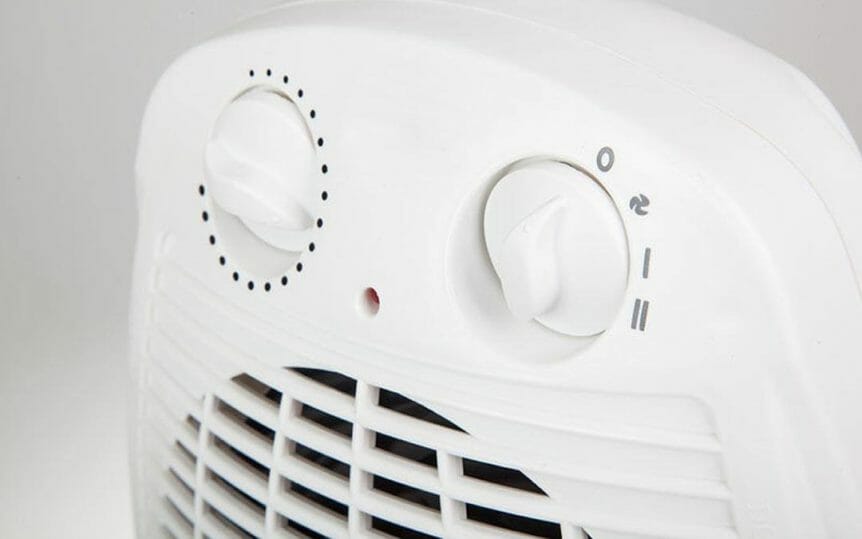
New Space Heater Features Promote Electrical Safety
When it’s cold outside, we Houstonians are always looking for ways to stay warm. And so far, this winter has proven to be pretty extreme for our warm Texas blood! That’s why we turn to things like coats, scarfs, gloves, and extra blankets while we sleep. And if things get really bad, we get out a space heater. Space heaters are a great way to keep a particular room toasty, and depending on the size of your home, can reduce your heating costs as much as 80%. That is, if they are being used correctly, because more often than not, space heaters are misused, and when this happens they become extremely dangerous.
According to the National Fire Protection Agency, approximately one-third of all house fires during the winter are caused by space heater-related issues. And according to the Harvard University Environmental Health & Safety group, they amount to at least 6,000 emergency room visits each winter. That’s a lot of danger for such a small appliance to produce, which is why we feel it’s important to discuss space heater safety.
“Space heaters are one of those items that people don’t tend to replace as often as they should. Typically a person will have the same old space heater for years and pull it out every winter,” said John Moore Services Electrical Manager David Floyd. “It’s those older ones that are more dangerous than the newer ones on the market. The old ones draw a lot of heat and become fire hazards, especially when people don’t pay attention to where they put them and end up setting it up next to an indoor plant, couch, or something else that is flammable. The new ones are made with certain safety protections like automatic shut-offs.”
Are there different types of space heaters?
Currently, there are two types of space heater on the market:
- Electric heaters are the safest type out there, and would probably be the best fit in an average household. Convection models are efficient and are best for heating an entire room because they produce heat more efficiently over a wider area. There are also models available with a fan that will better help spread the heated air. You can find some equipped with the following safety features:
- Extra long power cords, which will allow you to place the heater in spot far away from flammable material.
- Digital thermostat. This is beneficial because you can set the temperature of the air and do not have to worry about constantly adjusting your heater settings as the temperature varies.
- Tip over switch, touch sensor, overheat protection. These features will automatically shut off the heater if it is tipped over, touched, or if it overheats.
- Propane and Kerosene heaters are also available, but there is much more risk associated with them. Because heat is produced with gas, there is an open flame inside the heater. This means that the risk of carbon monoxide poisoning is greater and it is recommended to only use these types of heaters in rooms with good ventilation.
- Certain makes and models are equipped with: Oxygen depletion sensor/low-oxygen shut off. This feature senses the amount of oxygen in the air. When it senses that the oxygen level is dropping due to the buildup of carbon dioxide, it automatically shuts off the heater’s fuel flow.
Here are some more safety tips:
- Make sure your space heater is turned off before leaving the room and especially when you leave your house. Using your space heater only when you need extra warmth can save you money and reduce the risk of an accidental fire.
- Keep children and pets away from the heater. Certain heaters, mainly older models, heat up on the outside and can cause third degree burns within a second of touching it. A space heater is not a toy and can cause great harm to a small child or pet.
- Make sure the cord is not frayed or damaged. Frayed cords will create excess heat conditions and could potentially start a fire.
- Do not overload circuits while using a space heater. Never use an extension cord or multiple plugs with a space heater, and make sure the heater is not plugged into a receptacle with other electric appliances. Too many items plugged into a receptacle will create a heat condition and start a fire.
- Only place the heater on flat floor. Never put a space heater on a table or a floor that will enable the heater to wobble. Doing so creates a risk of the heater tipping over and starting a fire.
- Clear the area around your space heater. A space heater needs room and air flow to properly operate, and should never be close to flammable materials.
If used correctly, a space heater can be very beneficial to your home. But before you turn yours on, make sure you have read the instructions, know exactly how it works, and what safety features yours is equipped with. If you need any help or advice, the expert electricians for heat service and repair at John Moore are only a phone call away!
